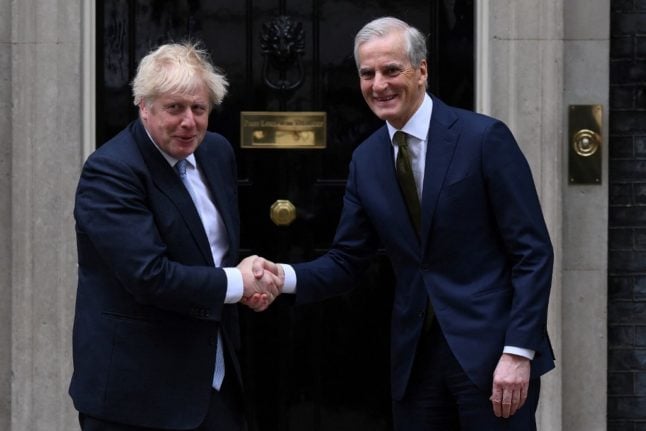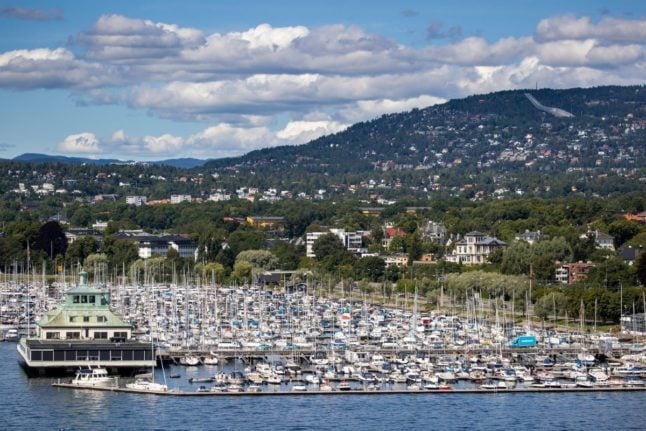Norwegian Prime Minister Jonas Gahr Støre visited Downing Street on Friday and met UK Prime Minister Boris Johnson, where the pair signed a declaration of cooperation between the two countries.
“Britain is a good neighbour and close ally. We have a long tradition of close cooperation. The British are now outside the EU, and bilateral cooperation is becoming even more important than before,” Støre said in a statement on the government’s website.
The joint declaration on bilateral strategic cooperation outlines defence and security, the climate and environment, research and innovation and education and culture as issues the two countries wish to cooperate on in the future.
Støre’s visit was the first bilateral meeting of the countries’ PMs since Brexit. The pair also discussed the green shift, the war in Ukraine and defence.
Støre also arranged a round table conference on energy, the climate and business with the UK Minister of Trade, Kwasi Kwarteng, and a number of representatives from Norwegian and British firms.
“The green transition is important for our two countries. I spoke about our great ambitions for offshore wind, and this is one of many areas where Norway and the United Kingdom can cooperate more,” Støre said.
Earlier this week, the Norwegian government announced that it would build 1,500 offshore wind turbines by 2040.
Last year, the UK and Norway signed a post-Brexit trade deal, which the Norwegian government said was the largest free trade agreement the country had entered into outside of its arrangement with the European Economic Area.



 Please whitelist us to continue reading.
Please whitelist us to continue reading.
Member comments